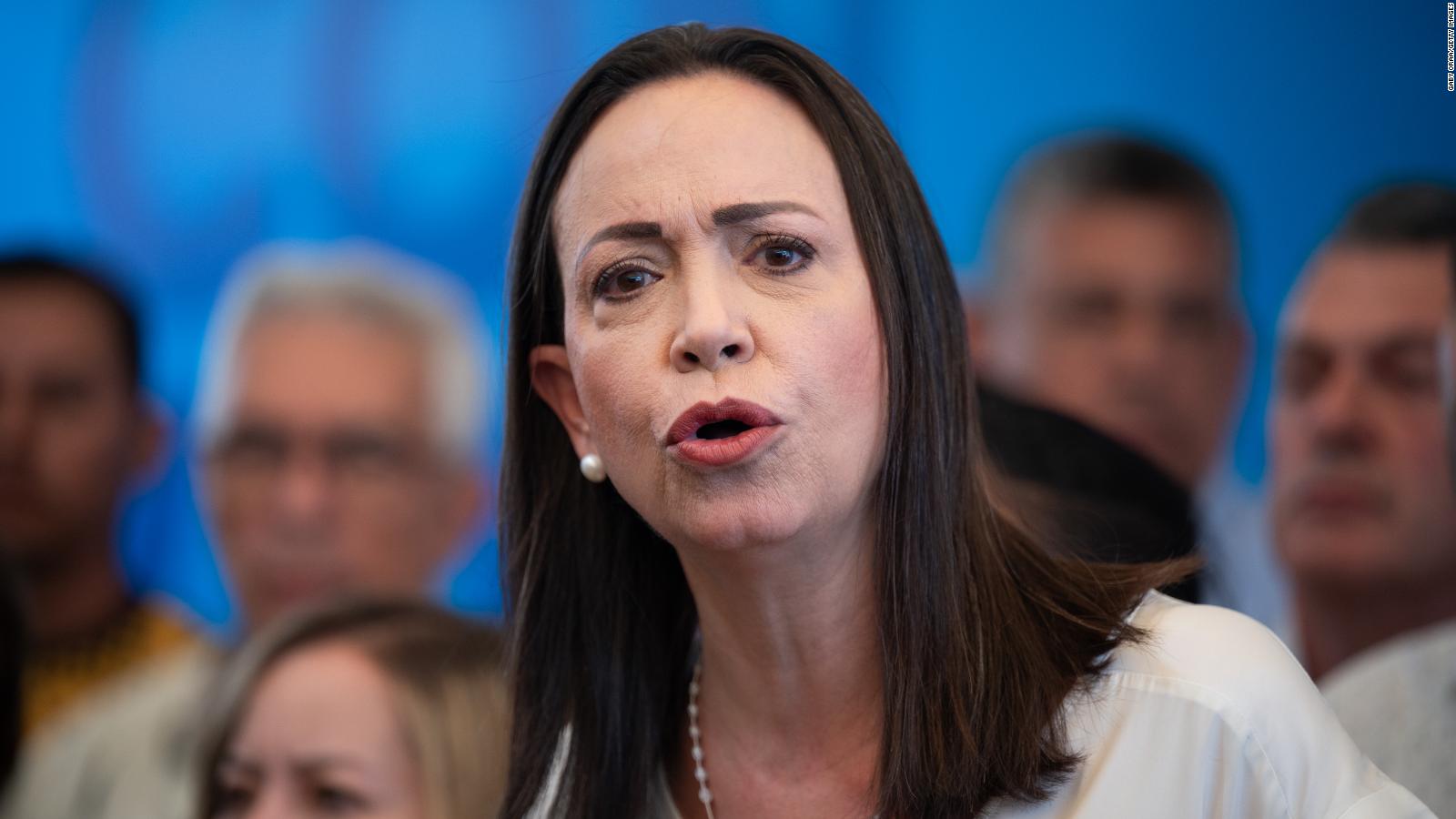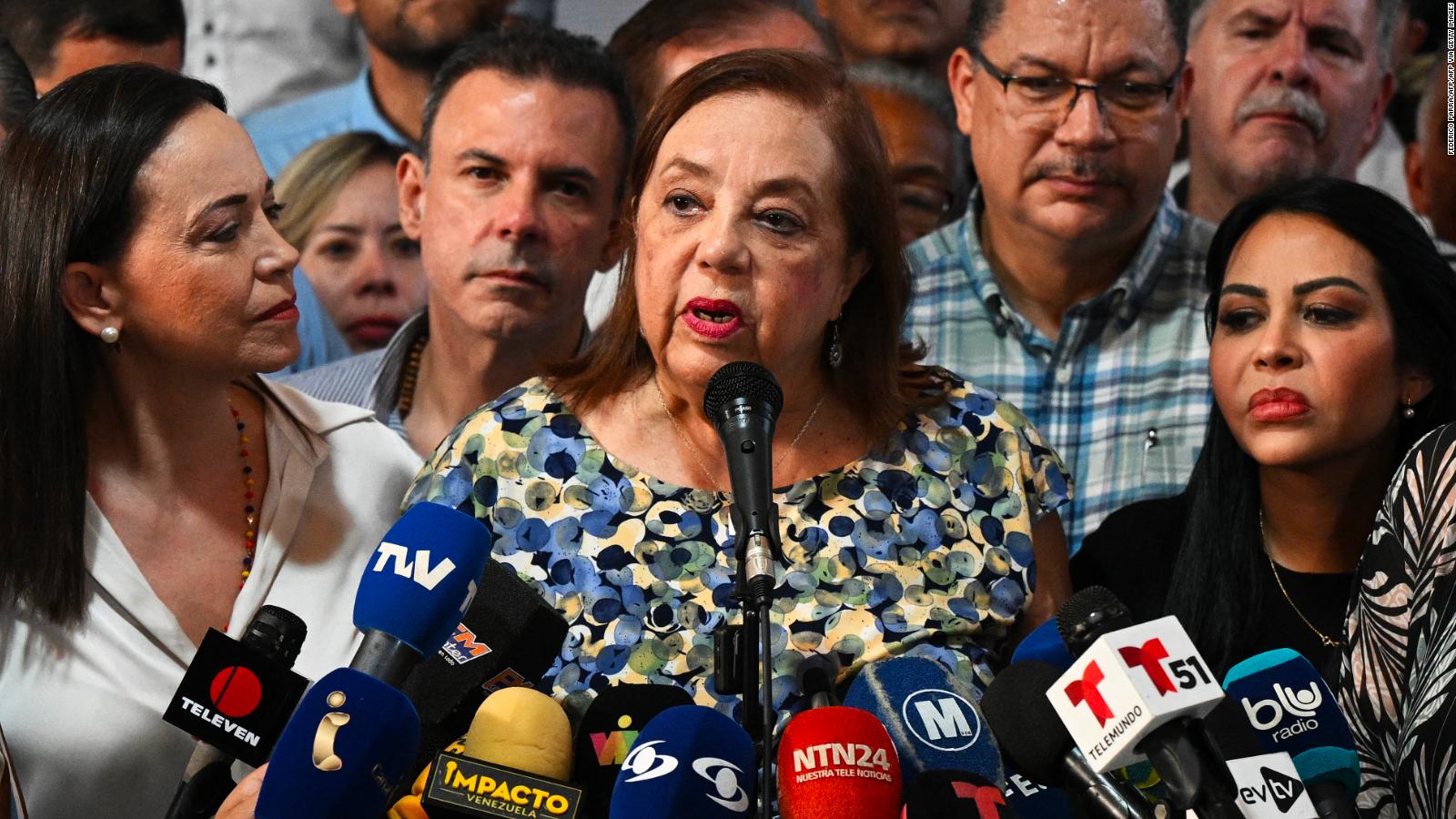(CNN in Spanish) — Colombian President Gustavo Petro spoke on Monday about the electoral process in Venezuela at a time of political tension in the neighboring country, as part of the opposition, led by Maria Corina Machado, denounced the lack of guarantees to join the electoral process. The electoral process next July.
From Colombia, Petro, described by his critics as an “ally” of the Venezuelan government, and who chose from the beginning of his government to restore relations with the government of Nicolas Maduro, said that what happened in Venezuela by not allowing the opposition Maria Corina Machado to register as a presidential candidate is an “anti-democratic coup.” “.
Petro was referring to the political right to choose and run for elections, which he said was a right “not an individual, but a social one,” and he criticized that due to the decisions of the “administrative” electoral authorities, he was prevented from participating in the elections.
“Today, this discussion has been discussed very well in the events of Venezuela,” Petro said at the inauguration of new State Counselor Gloria María Gómez Montoya.
“Ms. Maria Corina and others have already been excluded from participating in electoral campaigns by administrative authorities in the past… In Colombia the same thing is happening: here as a kind of double standard, we attack what they are doing there because it is undoubtedly anti-political.” “A democratic coup, but we hide that it happened here as well.”

As of Tuesday, the Venezuelan government had not commented on Petro's statements and did not respond to a request for comment sent by CNN.
Pietro's words come at a time when a sector of the opposition, led by Maria Corina Machado, denounced Maduro's desire to field an “opposition” candidate reserved for him in the presidential elections scheduled for July 28. The Venezuelan Supreme Court ratified Machado's political disqualification, and the candidate chosen to replace him, Corina Llores, was unable to register. He said that he had not received the keys to the digital registration and that he could not go to the National Electoral Council.
Machado sent a message to his followers on the social networking site X in which he highlighted the leftist voices that criticized the Maduro regime.
“What they did is so rude and obscene that they made their former allies have to raise their voices. Maduro cannot choose the candidate he will face in the presidential elections. We will not allow it. They want it,” he added. “There will be no elections.” Maria Corina Machado said This Monday on his social account X.
Since a week, The Colombian Ministry of Foreign Affairs issued a statement It asked the Maduro government and opposition sectors to adhere without restrictions to the provisions of the Barbados Agreement, in which Colombia served as an observer. In the statement, the Colombian government reiterated the need for a “free, fair and competitive presidential electoral process.” He also expressed concern about problems with the registration of some opposition candidates and, without specifically naming Joris, said that this fact “could affect the confidence of some sectors of the international community.”
Machado previously thanked the governments of Colombia, Brazil and France “For their positions in the last hours that reaffirmed that our battle is just and democratic.” He called on the international community to demand that Euris be allowed to register his candidacy.
venezuela advisor, evan generation, He accused the United States of “heading the operation against Venezuela” and of being “the owners of the circus that is trying to ignore the upcoming presidential elections and delegitimize them.”
But Petro is not the only leftist leader to speak out. Brazilian President Luiz Inacio Lula da Silva, a former ally of Maduro, said in late March that the obstacles preventing the registration of opposition candidate Corinna Llores in the Venezuelan presidential elections were “serious” and had no “legal” or political explanation.

The Brazilian Ministry of Foreign Affairs also expressed concern about the difficulties reported by opponents regarding their registration in Venezuela: “It was noted that the candidate indicated by the Unitary Program, a political opposition force, who was not affected by judicial rulings, was prevented from registering,” which is not in accordance with Barbados Agreements, a charter for political and electoral guarantees for this year's elections, within the framework of negotiations that began in August 2022, mediated by the Kingdom of Norway.
Venezuela's presidential elections are scheduled for July 28. So far, there are 13 registered candidates presented by 37 organizations and political parties. According to information from the National Electoral Council. Nicolas Maduro registered himself as the presidential candidate of the United Socialist Party of Venezuela (PSUV) at a public event in which he said that on July 28 there will be elections with or without the opposition. Maduro seeks a third term.






More Stories
Nicaragua picks up and delivers to El Salvador four subjects circulated by Interpol
UN experts have warned of serious human rights violations in the context of the presidential elections scheduled for July 28 in Venezuela.
The Organization of American States deploys observers for the US elections